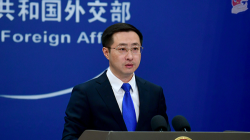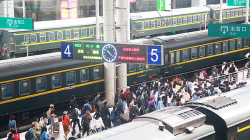The Pacific Islands Battle Plastic Pollution They Didn’t Cause!
Imagine living on a beautiful island surrounded by crystal-clear ocean 🌊. But one day, you notice the beach is covered in plastic bottles, bags, and even old fishing nets! 😱 That’s what’s happening to many Pacific Island nations like Fiji, Vanuatu, and Samoa.
Where Is All This Plastic Coming From?
Most of the plastic waste in the ocean comes from faraway, industrialized countries 🏭. Strong ocean currents act like giant conveyor belts, carrying this trash across the Pacific Ocean. Even though these island nations produce very little plastic waste themselves, they end up with piles of it washing up on their shores. It’s like someone else’s trash ending up in your backyard! 🗑️
The Great Pacific Garbage Patch
A lot of this plastic collects in places like the Great Pacific Garbage Patch, which is like a big, floating island of trash. Eventually, pieces break off and drift toward smaller islands 🏝️.
Why Is This a Problem?
Plastic pollution hurts the ocean’s creatures 🐠, damages coral reefs, and can even get into the fish people eat 🍣. The plastic breaks down into tiny pieces called microplastics, which can be harmful if swallowed. Local communities worry about their health and the environment they depend on.
Working Together to Find Solutions
People around the world are trying to fix this problem 🤝. In March 2022, countries agreed to work on a global treaty to end plastic pollution 🌍. They hope to have a plan by the end of 2024.
In the meantime, countries like China are taking action. China’s “14th Five-Year Plan” aims to reduce plastic production and improve how waste is managed 🗑️. China is also helping Pacific Island nations by sharing knowledge about protecting the ocean and taking care of fish 🐟.
Learning from Each Other
Chinese scientists and researchers are working with people from the Pacific Islands 🌺. For example, students from Tonga, Vanuatu, Kiribati, and Samoa are studying marine and biological sciences at universities in China 🎓. This helps everyone learn more about keeping our oceans clean and healthy.
What Can We Do?
You might be wondering, “What can I do to help?” Here are some ideas:
- Reduce the use of single-use plastics like straws and plastic bags 🚫🛍️.
- Recycle whenever possible ♻️.
- Participate in or organize beach clean-ups 🏖️.
- Spread the word about the importance of reducing plastic pollution 📣.
Remember, our oceans connect us all. By working together, we can help protect these beautiful island nations and the creatures that call the ocean home 🐢❤️.
Reference(s):
How Pacific Island nations are confronting a crisis they didn't create
cgtn.com




